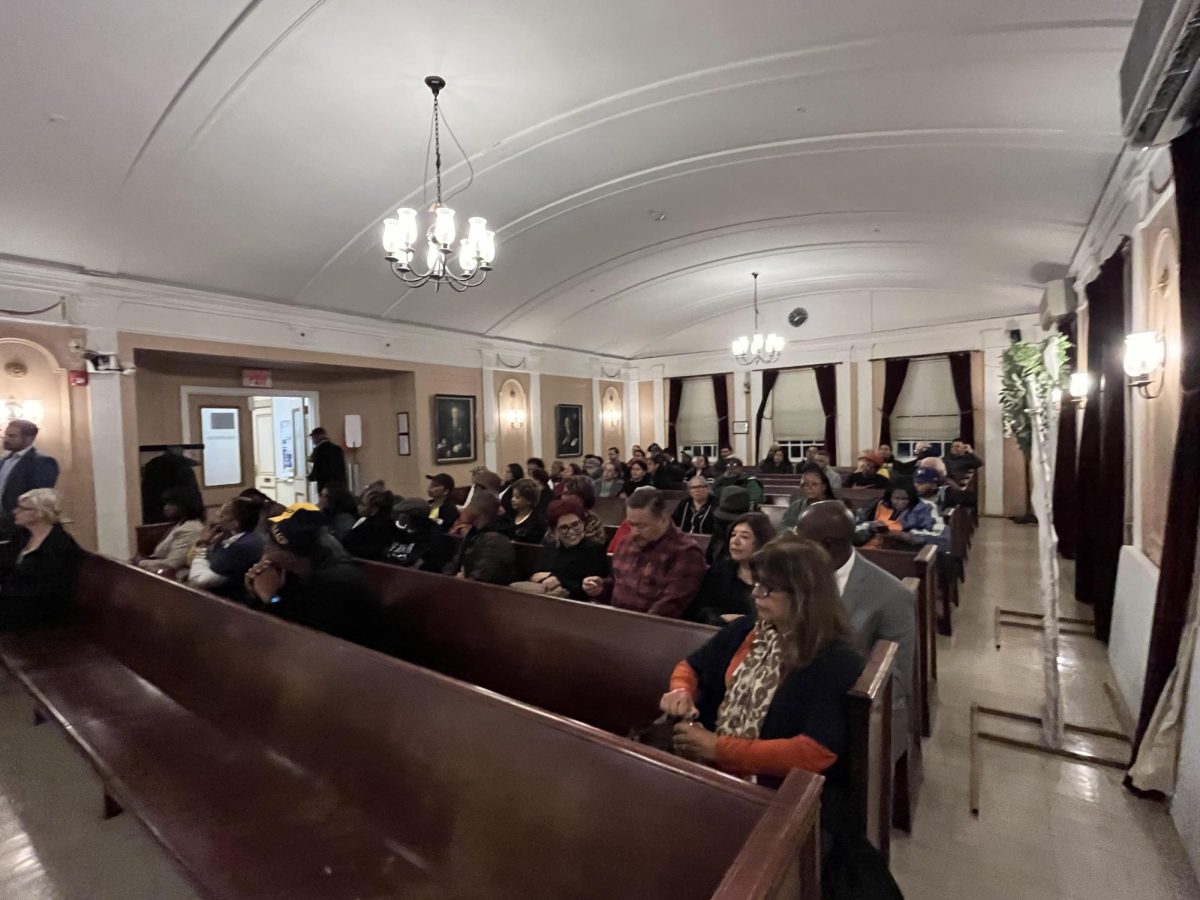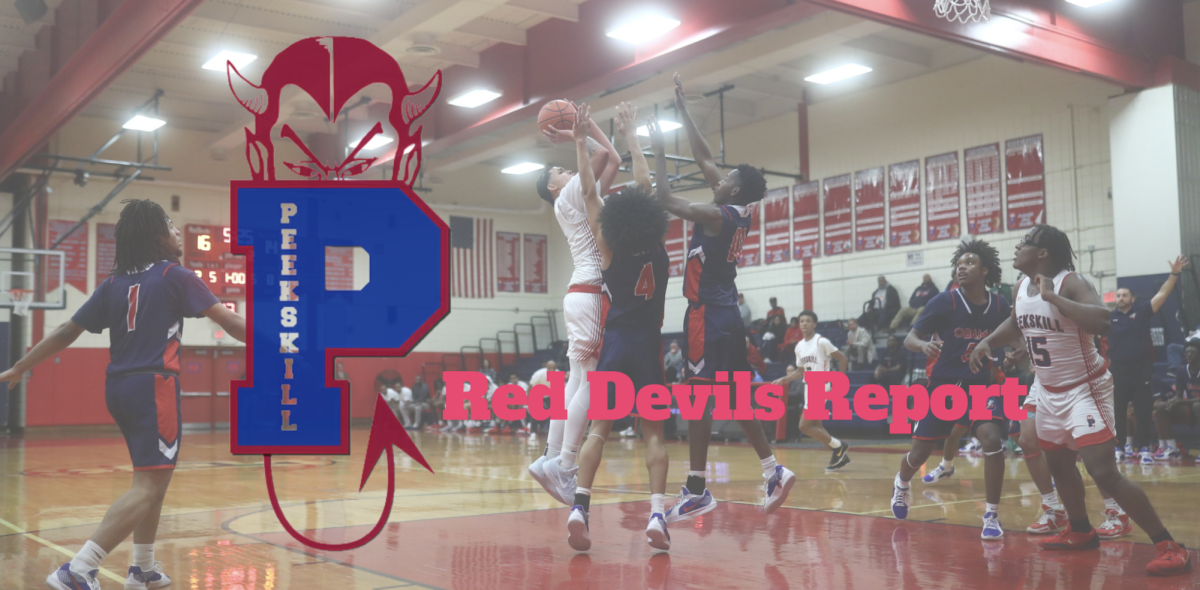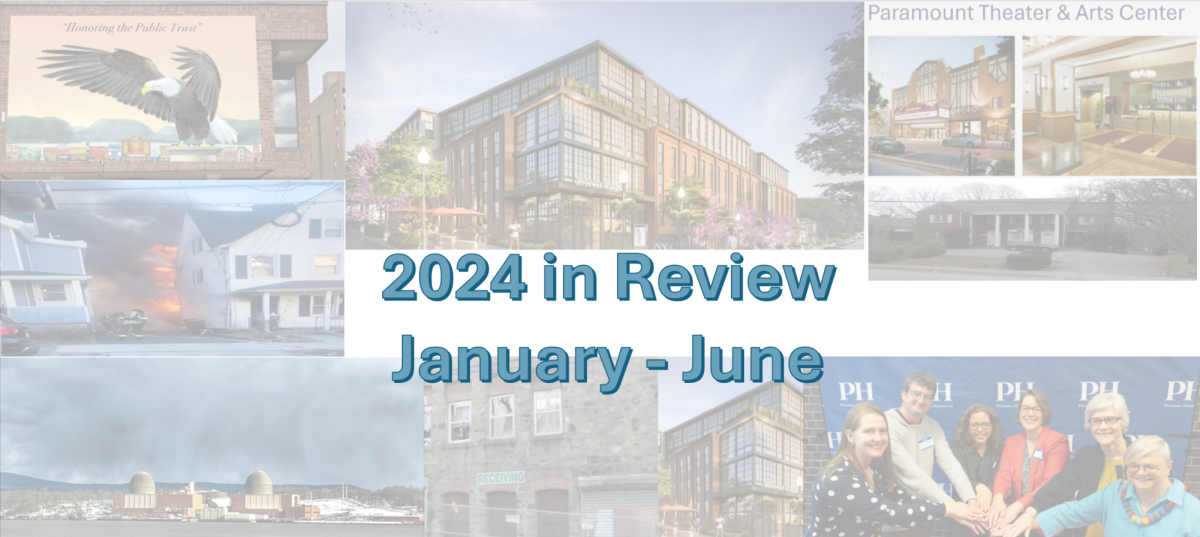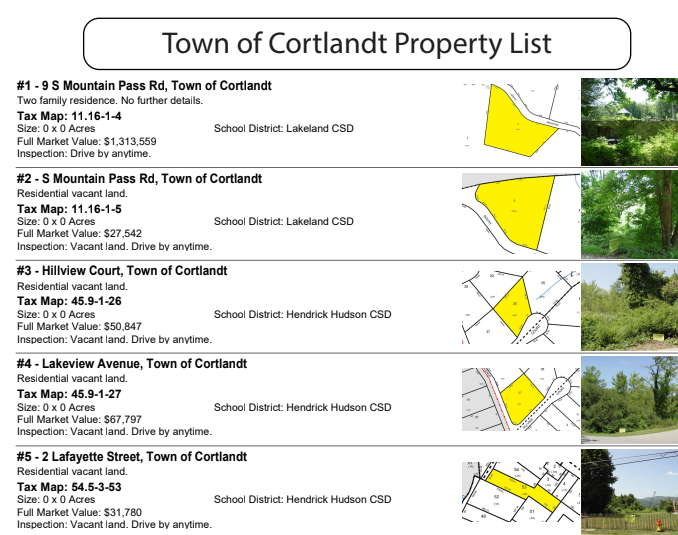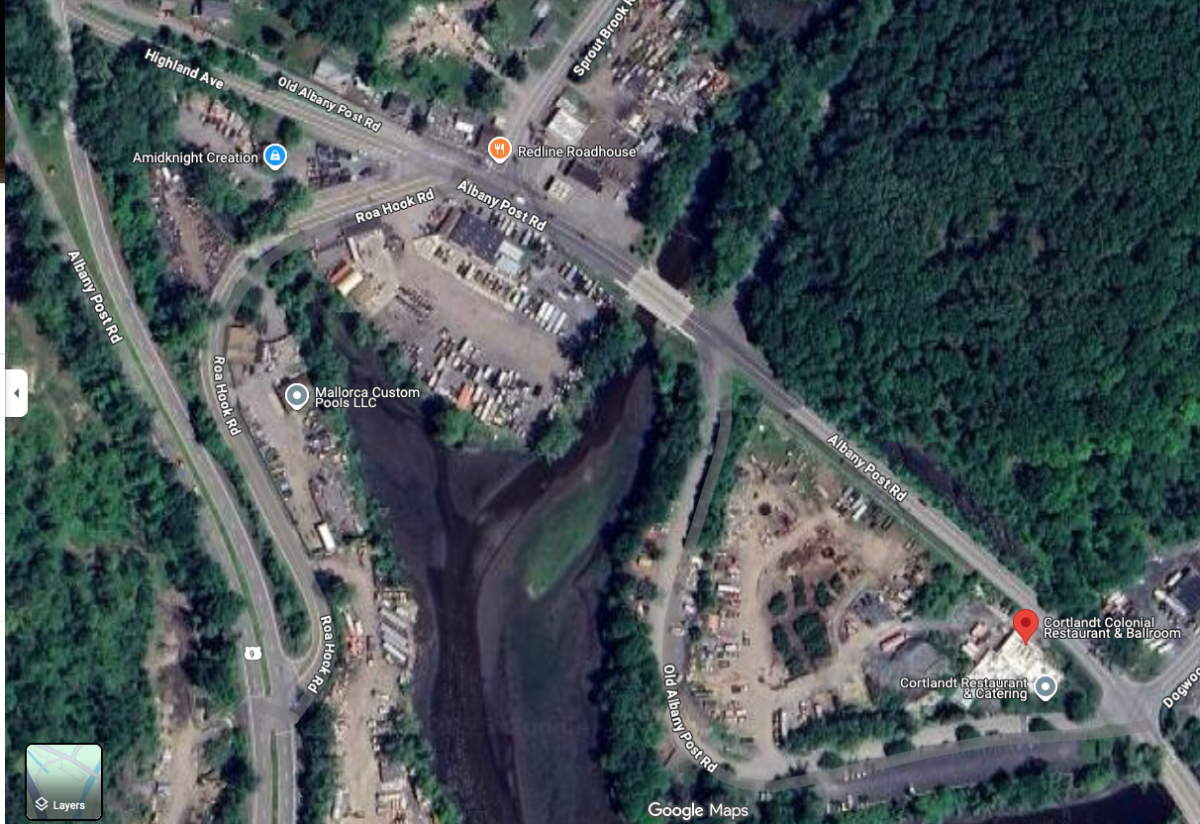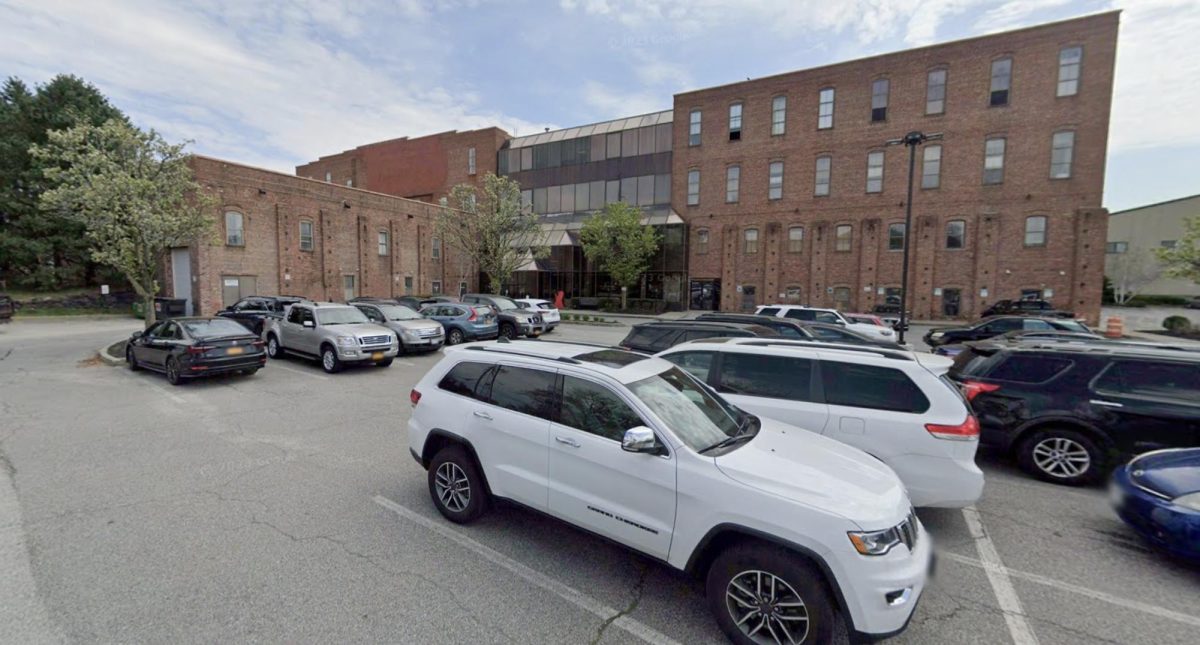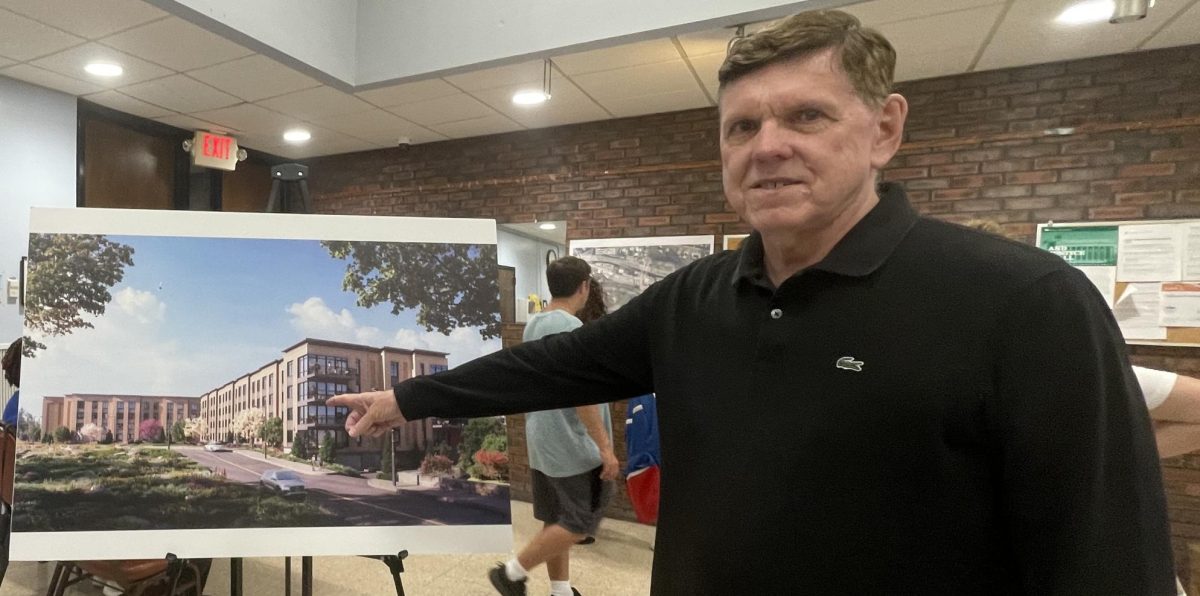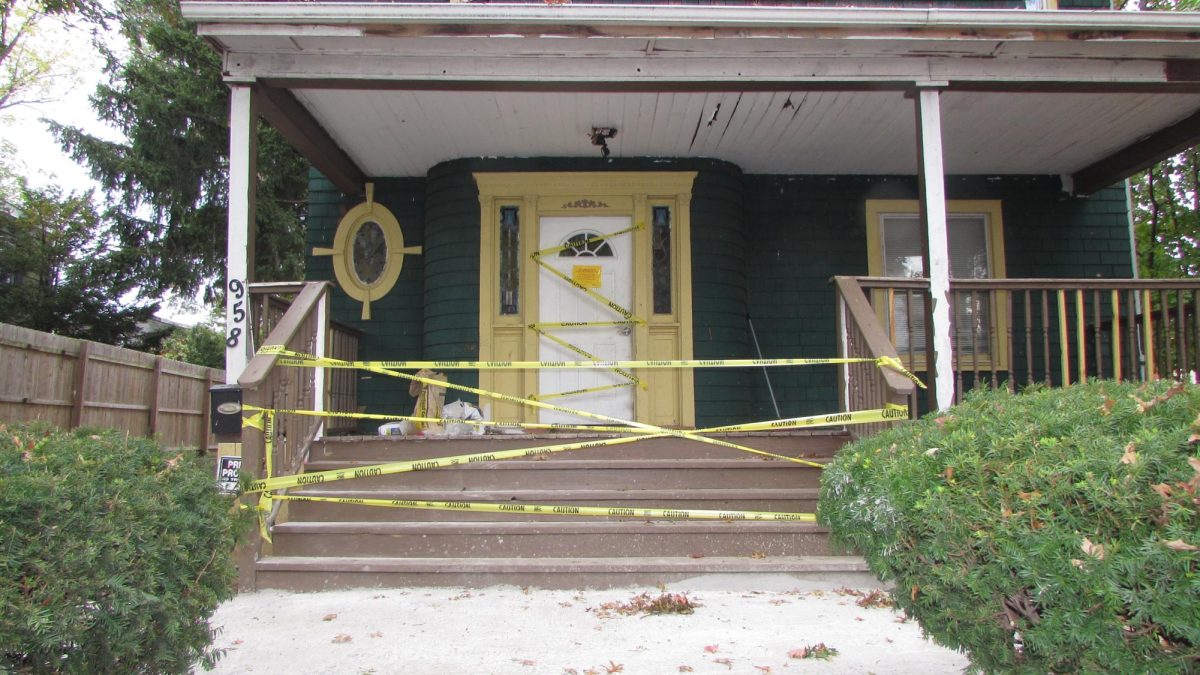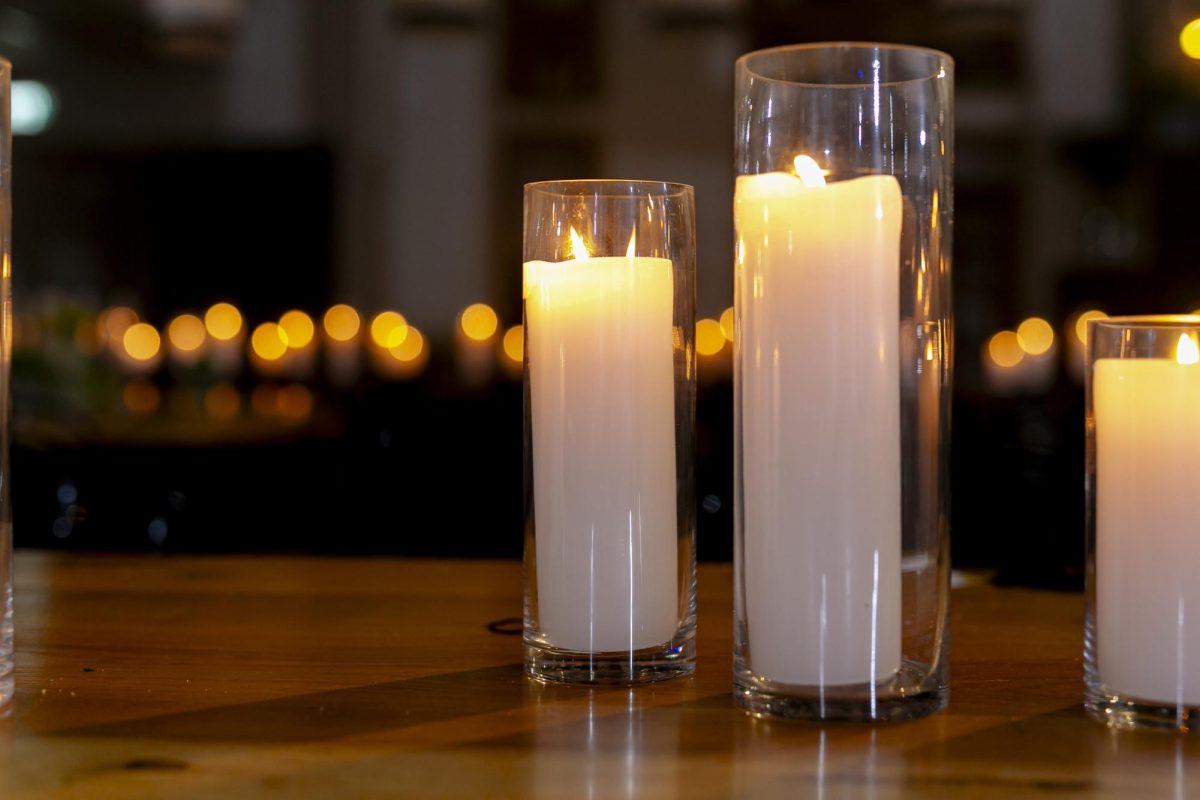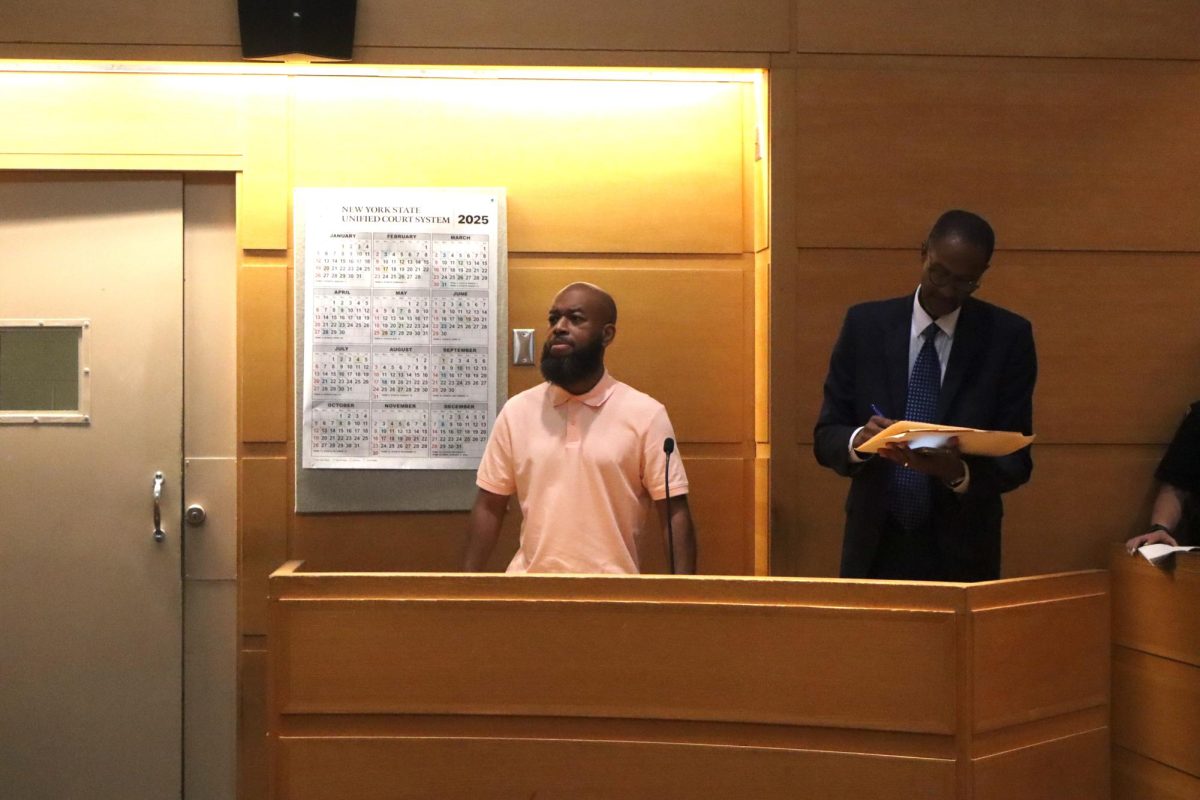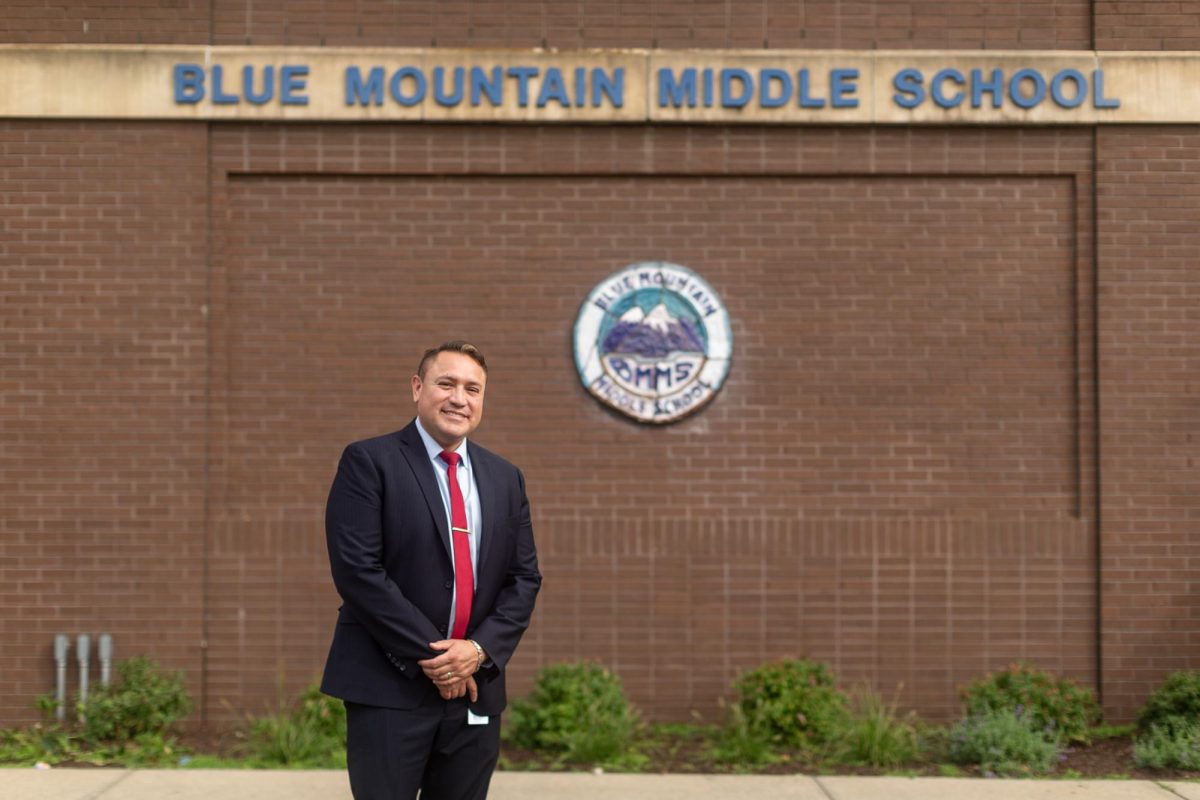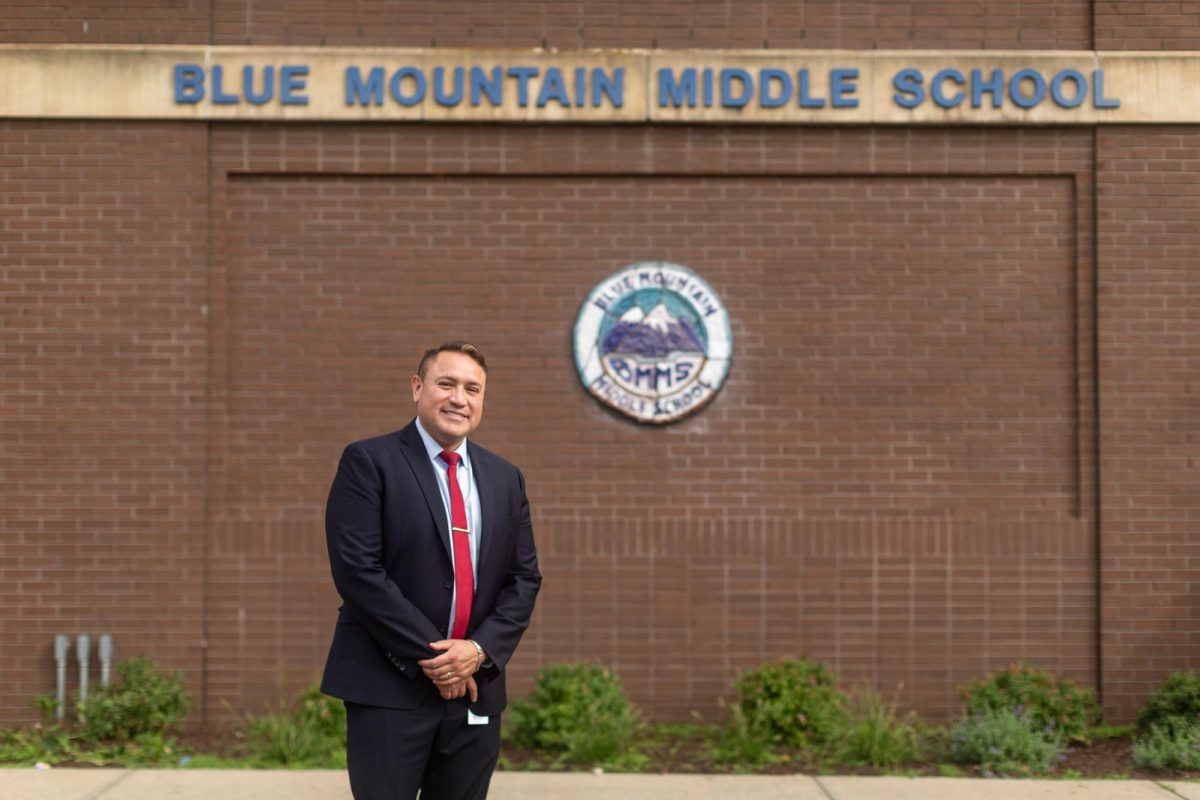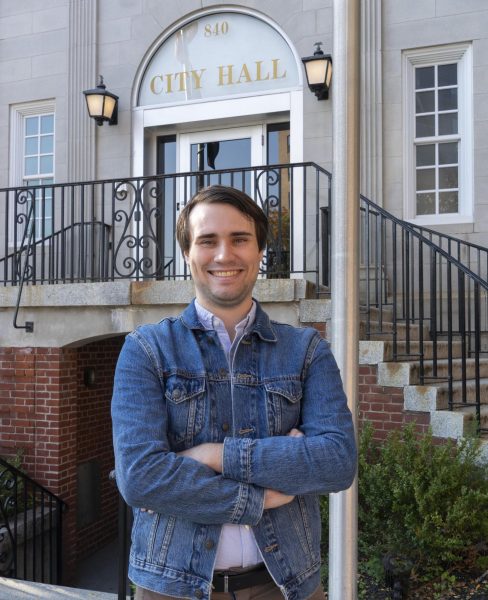It was nearly a full house at Tuesday’s Common Council meeting due in part to two hearings, one on cannabis manufacturers looking to open in Peekskill and another on limiting business hours of restaurants between 2 a.m. and 5 a.m.
The Art of Flower Farm and Dispensary is seeking a special permit from the Common Council for a cannabis micro business at 1698 Main St called “Quality High.” Co-owners of the business Matthew Nicoletti and Nathan Lyons presented at the hearing alongside architect Marco Mandra.
The owners have proposed the reconfiguration of the second floor commercial space located in the C3 zoning district, which is currently not an allowed use under manufacturing for the city, explained Mandra. The Zoning Board of Appeals determined at their August meeting that it was an allowed use under the definition of manufacturing, he said. The facility would be equipped with new growing equipment, with plants processed, packaged and distributed to owners’ dispensary located in Sleepy Hollow.
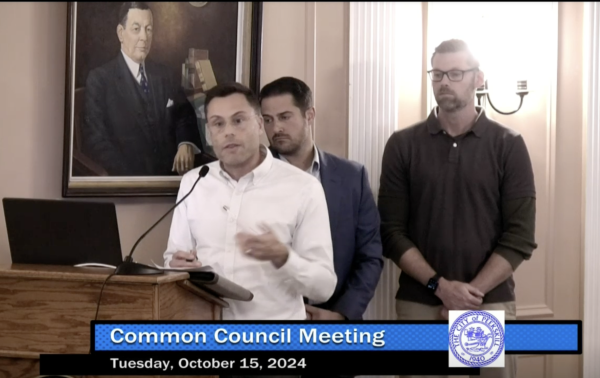
Director of Planning Carol Samol shared the application with both the police chief and fire chief, and said the police chief does not have any strong concerns about the facility and said the security meets state requirements. Nicoletti shared responses to questions from the fire chief, saying they would require a Knox box on site if required and will have an alarm system connected to a third party monitoring station.
“We understand that we’re the first cannabis manufacturers looking to open in Peekskill, and some people have concerns with our business,” Nicoletti said. “We’re very sensitive to this as we understand the stigma that’s been associated with our industry due to the fact that it has not been a legal industry until just recently. We hope that through transparency, education and responsible business practices we can ease these concerns.”
Peekskill resident and former president of Peekskill’s National Association for the Advancement of Colored People Valerie Eaton said she was not concerned about whether or not there was a dispensary in the neighborhood, but rather about owners Nicoletti and Lyons being from Pleasantville and Chappaqua respectively.
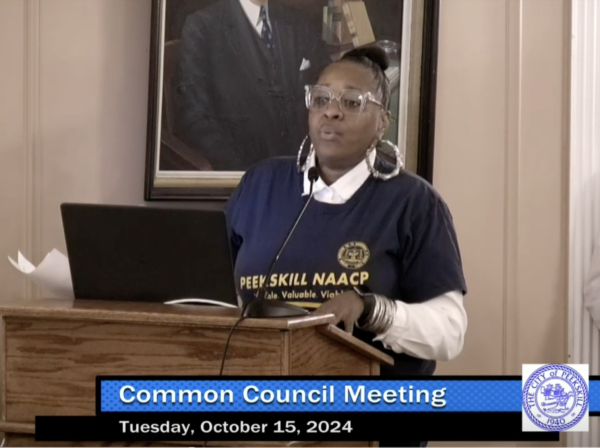
“One reason is that I see three white men come up here and talk about the dispensary, but I didn’t hear anything about supporting the community that they’re coming to,” Eaton said. “Number two, I don’t understand why they’re coming to Peekskill versus Pleasantville or Chappaqua.”
Eaton said the NAACP has constantly discussed what new cannabis legalization and dispensaries would do for the community, particularly to those who were disenfranchised, stopped and frisked, and incarcerated because of a single joint.
“What is this business going to do for our community?” Eaton asked. “What is it going to do for our black and brown sisters and brothers in our community? Are they giving back to our community or are they just having a grow house in an area that is mostly black and brown?”
Nicoletti said they are planning on having a meeting with Peekskill’s Caring for the Hungry and Homeless of Peekskill next Thursday and are open to working with other local organizations. In response to another speaker during the hearing, Micah Benson, he said they‘d be open to beautifying the exterior if the building owners were open to it. Though the business name would not be incorporated to it to not draw attraction to the facility not open to the public, he said.
“We chose Peekskill initially because Peekskill voted to opt in for cannabis dispensaries,” Nicoletti told the Herald. “So when you’re trying to get into a new emerging industry, you’re looking to be in a community that seems to be open to the business that you’re starting. And for us, we made the assumption that the city of Peekskill was friendly to cannabis based on the fact they voted for dispensaries.” He also explained they looked in every municipality in Westchester that allowed cannabis and Peekskill was the only one with a facility that was amenable to their type of business.
Nicoletti said that it was an injustice that cannabis was illegal for as long as it was and thinks that it does a lot of good for people. He added that his father, who passed away from cancer, was provided with cannabis while he was suffering from the pain.
“For him, cannabis provided him with the largest relief,” Nicoletti said. “And the line that I always remember him saying to me was, ‘Matt, it doesn’t make the pain go away, but it makes it bearable.’ That was one of those things that stayed with me.”
Eaton told the Herald that she was apprehensive about the business supporting the neighborhood because Peekskill has been dumped on in the past before, figuratively and literally with a dumping ground of garbage.
“So now you’re coming up here to dump on us again and get a dispensary where you’re not helping our community? That doesn’t sound right to me,” she said. “This is a great city with some big issues. But I think that if we all come together, Black, white, purple, green, orange whatever, we all come together for one common good then we could have (harmony). Issues don’t get solved overnight sometimes and that’s okay. But just to have a conversation and come together and unify and be peaceful, that’s what everybody wants.”
During the hearing Mayor Vivian McKenzie was absent. Upon her return for the next public hearing she noted that she was not being rude but “I own property where that project was, so I had to recuse myself. That’s why I left the room.”
Public voices concerns about limiting business hours for restaurants
After a public hearing in September, the city incorporated comments into a new proposed amendment to the city charter concerning the hours restaurants are open. The proposed changes exempt fast food establishments, delis, diners and other food establishments not defined as a restaurant. The second proposed change restricts restaurants located in the limited hours of operation district from being open to business to the public between 2 a.m. and 5 a.m rather than 2 a.m. to 6 a.m. The limited hours of operation district includes: The area bounded by and including Main Street eastward from Route 9 to Hadden Street; Hadden Street northward from Main Street to Belden Street; Belden/Paulding Street eastward to Nelson Avenue; Nelson Avenue northward to Phoenix Avenue; Phoenix Avenue eastward to North Division Street; North Division Street southward to Orchard Street; Orchard Street eastward to North Broad Street; North Broad Street southward to Main Street; Main Street eastward from North Broad Street to Grant Avenue; Grant Avenue southward from Main Street to Park Street; Park Street westward from Grant Avenue to South Division Street; South Division Street southward from Park Street to South Street; South Street westward from South Division Street to Route 9; and Route 9 northward from South Street to Main Street, and each and every street, avenue or way within that area, including but not limited to the portions of the following streets contained within that area; Decatur Avenue, John Street, Nelson Avenue, Union Avenue, Main Street, North Division Street, South Division Street, James Street, North Broad Street, South Broad Street, Sparrow Lane, Field Street.
Peekskill resident Elena Walker said she appreciated the council reviewing the times of the closing, but questioned the fact that Peekskill has many ordinances and laws in effect that she believes haven’t been strongly enforced.
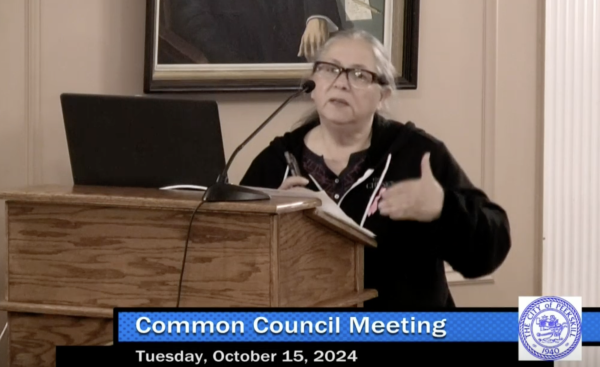
“A lot of the businesses would be ill affected,” Walker said. “I think (by) doing a zone you’re making some people pay for the price of other irresponsible businesses. And I really believe that we need to enforce code enforcement, other laws, and go after these people who are not obeying, not the businesses that really do contribute to our community, that really do service the public, that are really serving customers that come from out of town.”
Rob Blatt, owner of Copperhead Club on the corner of Main and Water Streets, shared similar concerns, noting that in the last public hearing there was pretty much no one who got up to speak in favor of the proposed changes. He added that there is a chapter in the city code that gives the city manager authority to impose penalties for public nuisances, as well as laws in the central commercial and waterfront districts that prohibit indoor sound to be audible outside of their location at certain hours between the night and morning.
“If disturbing the residents in these districts are in fact the issue I would be interested to hear how the enforcement of our current laws has fallen short and why additional regulations are necessary,” Blatt said. “And why additional regulations are necessary and how these additional regulations will be different than the existing ones.”
Budgets, city limits, and a possible solution to address issues of homelessness
At the meeting, City Clerk Cassandra Redd presented the budget of the Clerk’s Office to the actuals. The 2024 budget as of Sept. 30 was $204,251 with a projected budget being $272,500.
“We are on target to stay within the projected number of $272,500,” Redd said. “There are no large outlays or items needed from now to the end of the year.”
Redd said that the clerk’s office worked with the Acme United Corporation to improve the Freedom Of Information Law (FOIL) process, where they are at nearly 500 requests for this year. Other business included discussion about lowering the city default speed limit to 25 miles per hour rather than 30 miles per hour. City Manager Matthew Alexander also spoke about an overcrowding violation at a house that resulted in many tickets being written, many tenants being left in “deplorable” conditions and a gas leak.
During the public comment portion of the meeting, Caring for the Hungry and Homeless of Peekskill (CHHOP) Executive Director Cynthia Knox offered a potential solution to an issue of individuals sleeping outdoors in parks and other spaces.
She said that CHHOP has seen an 18 percent increase in homeless veterans trying to access their services, yet they turn away three veterans each month due to limited capacity at the Jan Peek House. As a result, they are going through the process of updating their operations to accommodate the community’s current needs, rather than 36 years ago when the House was first opened, she said.
“Peekskill is not alone with the issue of unsheltered individuals,” Knox said. “We have a nationwide housing crisis and Peekskill is not immune. But there are ways that we can proactively address this here.”
Knox referenced the Code Blue alert, which warns when the temperature drops below 32 degrees it’s mandated by the state that no unhoused person seeking shelter can be denied. She said that Code Blue funding can pay for a warming center to help people off the streets, as well as outreach workers who can work at night. She said there were numerous models for Code Blue types of warming centers, including one by the Briarcliff Ossining Ministerial Association that the council could look to emulate in Peekskill.
Mayor McKenzie asked Knox to present the issue for another council meeting due to her presentation exceeding the three minute time limit to speak.
“We appreciate it,” McKenzie said. “This sounds like something that could work so we really want to hear about it.”


